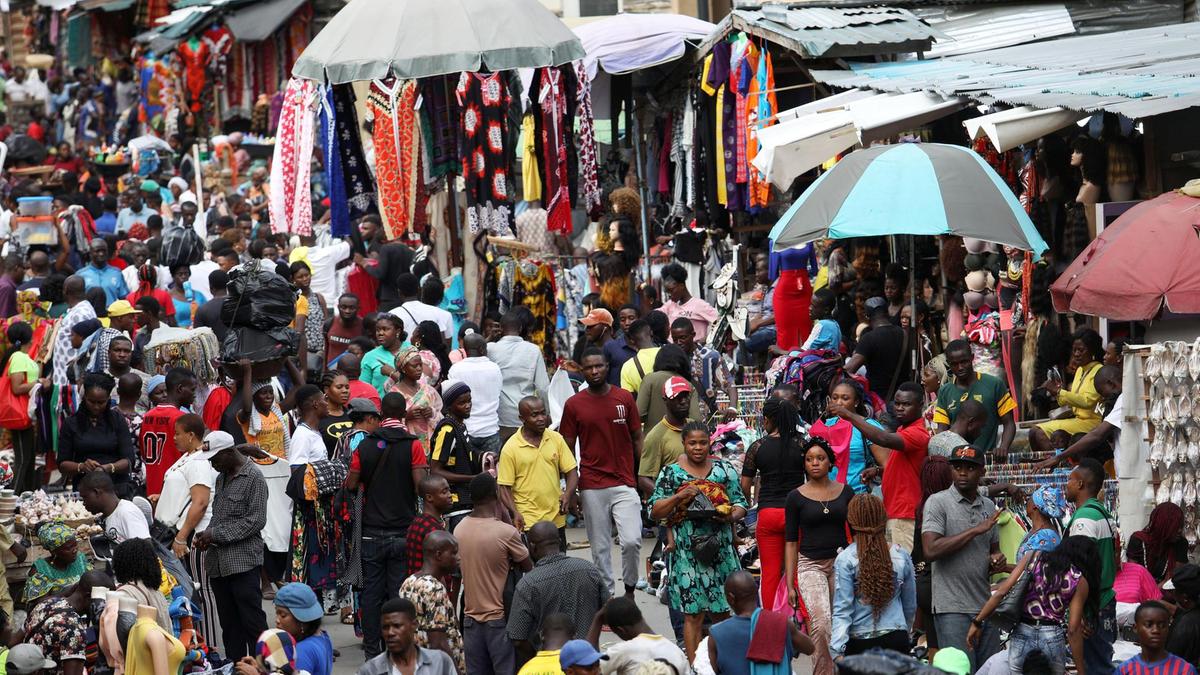
Nigeria is in the vortex of economic meltdown with inflation galloping into distressing heights. For the average Nigerians, times are hard, with prices of food items, electricity, gas and other household items skyrocketing in a manner never witnessed before.
This development has created an atmosphere of pressure so choking that meeting the challenge of everyday life has become difficult for ordinary Nigerians.
Inflation stepped up to its highest level in 11 months, levelling up from 16.82% recorded in April 2022 to 17.71% in May according to the recently released Consumer Price Index report, released by the National Bureau of Statistics (NBS).
The food inflation index rose by 19.5% year-on-year in May 2022, representing a 1.13% points uptick compared to 18.37% recorded in the previous month.
This rise in the food index was caused by increases in prices of Bread and cereals, Food products, potatoes, yam, and other tubers, wine, fish, meat, and oils. The most challenging for an average household is how to provide food for the family.
Many families because of pervasive poverty can not meet up in terms of three square meals a day, and for many it has reduced to the formula of 1-0-1, but many who spoke to Business Hallmark contend that the feeding formula ratio in their households has sadly become: 0-0-1.
Funsho Adebayo, a private secondary school teacher, who says he is on a salary of less than N30,000 a month with a wife that sells pepper in the local market in Sango Ota contends that life has become an uphill task for him.
“I read Mathematics, but when I searched for gainful employment without success I had to make do with something, that is how I got into teaching in private school. I have been at it for the past seven years. I have two children. It has been very difficult feeding my family.”
It will be difficult for income earners in the bracket of Adebayo’s to cope with the average price of rice (50kg bag) hovering between ₦24,000 and N28,000.
Price of rice and location:
50kg bag Jos, Plateau State ₦23,500 – ₦25,000
50kg bag Ilorin, Kwara State ₦24,000 – ₦27,000
50kg bag Ibadan, Oyo State ₦22,000 – ₦25,500
50kg bag Port Harcourt ₦23,500 – ₦26,500
25kg bag Lagos ₦13,000 – ₦14,000
25kg bag Sokoto ₦11,500 – ₦13,000
100kg bag Sokoto ₦44,000 – ₦47,000
50kg bag Lagos ₦25,500 – ₦27,000
Michael Onyema has similar story to tell. A banker until recently, having left Union Bank in 2017 to try his hand in business with his friend. The large farm they invested in Katsina Ala in Benue state was a mine of hope for he and Adesuna his friend, for them a way out of poverty.
Together they invested over two million Naira, but their hope of redemption from perennial lack was cut short by Fulani herdsmen who destroyed their cassava farm.
With no where to go, Onyema now plies Agege-Agbado route with his combi minibus.
” My brother, life is tough. I have seven mouths to feed, yet I only make money for the Agberos and their masters through forceful multiple ticketing. My two children could not write junior WAEC because of money.
“Before, I used to feed household with N20000 a month, but now the utility bill, I mean electricity alone is N7000, not to talk of miscellaneous items. To feed now I use N30000 which if available my wife has to manage. The inflation rate is high.”
For Biodun Akano, a computer programmer in Lekki, said life has not been easy.
“Even though I’m not married, I don’t need to be told that in the current administration, Nigeria has gone from bad to worst. I take care of my aged parents and my brother in the University. The current inflation has made life difficult.
“You hold hundred thousand in your hands, after purchasing two or three items the money is finished. I used to send about N30000 to my parents as monthly upkeep, but now the money is not enough.
“In order to meet up with my burgeoning responsibility, on my way to office I always carry passengers at Berger to Lekki for one thousand per passenger. I do same when I’m returning in the evening. I live in Arepo”.
Price of Beans:
Beans Type Size Amount:
Butter Beans 50kg ₦32,000 – ₦37,000
Butter Beans 25kg ₦16,500 – ₦18,500
Drum Beans 100kg ₦60,000 – ₦68,000
Drum Beans Paint bucket ₦800 – ₦1,300
White Beans 100kg ₦63,000 – ₦67,000
White Beans 50kg ₦31,000 – ₦34,500
White Beans Paint bucket ₦900 – ₦1,600
Butter White Beans 25kg ₦10,300 – ₦15,000
Cowpea Black Beans (Akidi) – ₦2,000 – ₦2,800
Oloyin Beans 50kg ₦28,000 – ₦39,000
Oloyin Beans 25kg ₦14,500 – ₦20,000
Brown Beans 50kg ₦31,000 – ₦37,000
Ahmed Abubakar, a tomato seller at Ile Epo, near Abule Egba, complained to this reporter at the high cost of bringing tomatoes and onions to Lagos from Katsina.
“About two years ago, three of us used to pull resources together to bring tomatoes and onions from Katsina. But now, we can not do that because of costs. What we do now is to go to Mile 12 and buy in large quantity twice the former cost.
“Yet the people buying from us are complaining of the high cost. The road is not good because of insecurity.”
He said the only solution is for government to tackle insecurity which has made it difficult for farmers to access their lands. He also said farmers and their produce are not protected by government.
At House 30, a popular high brow drinking joint at Adeniyi Jones, the usual beehive of conviviality and drinking camaraderie was visible last Thursday when Business Hallmark visited.
A man who identified himself as Peter, a business man was in company of his friends doing justice to pepper soup.
He told this medium that in company of his friends they used to come to the joint every night to chill out, but not any more because of economic situation.
“If it were before you will see Hennessy on our table and other assortment of drinks, but as you can see we are taking Heineken, that’s the sign of the time”, he said.
He said the cost of feeding has tripled “but we can’t just stay at home, man must be man. After settling home which is becoming increasingly difficult we come here to while away time. It had never been this difficult in the history of this country.
Hafsat Suleiman sells Ponmo (skin hide) at Ile Epo market. She said: “I used to buy the basket of Ponmo at N7000 before and made about N4000 profit excluding transportation, but now the price has gone up to N13000, yet customers are complaining that the price is high.
“What can we do. I cannot sell less because I have to recoup my money and make profit. The country is hard. My husband is bricklayer, for weeks he may not get job and it’s not that we have savings. Most times we feed from the Ponmo business, pay school fees.
“Before I left home this morning, our landlady brought electricity bill. We stay in room and parlour with five children. Three of them have stopped attending school and have started learning trade because we have no money to sponsor their education.
“Since morning I have only sold N1700, out of it I will transport myself back home with N250. My family cannot feed until I get home. Is that life!?”
Biola Adeyemi, a school proprietor told Business Hallmark that unlike before things have become difficult.
“Now, we are not immune from the economic problem. It is only when parents have money that they can pay school fees. And if you’re too harsh they will take their children to another school. Some parents are still owing for last year.”
The proprietor of Success Secondary school, Iju Ishaga said “paying our teachers is becoming difficult. We just pray that the new government that will come on board in 2023 will do better.”
That prayer is on the lips of Nigerians burdened by the high cost of living.









